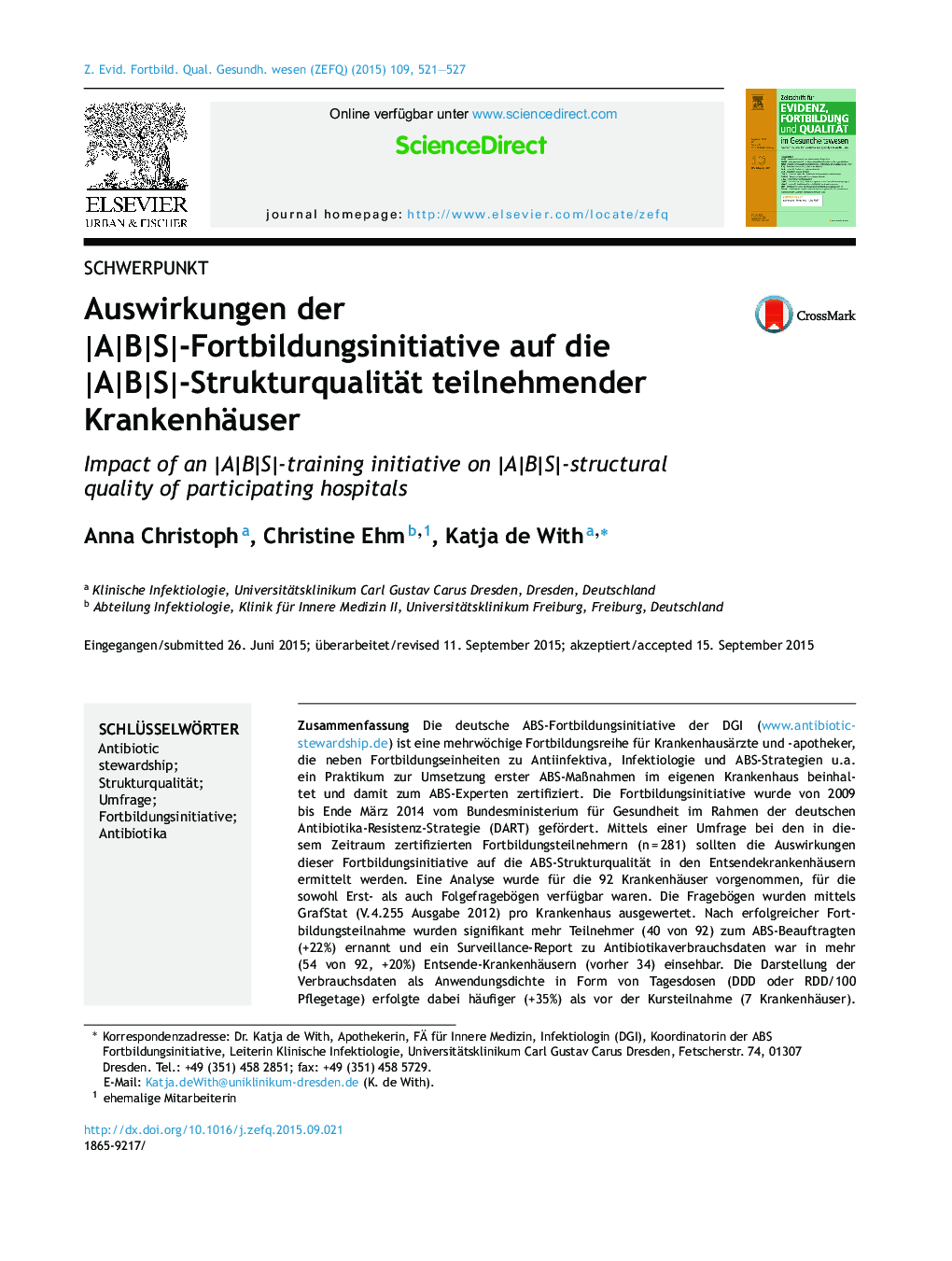| Article ID | Journal | Published Year | Pages | File Type |
|---|---|---|---|---|
| 10518564 | Zeitschrift für Evidenz, Fortbildung und Qualität im Gesundheitswesen | 2015 | 7 Pages |
Abstract
The “ABS-training initiative” was funded by the German Ministry of Health as part of the German Antimicrobial Resistance Strategy (Deutsche Antibiotika-Resistenz-Strategie, DART) from 2009 until early 2014. The initiative was designed for clinicians and clinical pharmacists and contains several training units covering antiinfectives, infectious diseases and ABS strategies including the conduction of a research project at the participants' hospital. Participants who complete the four-weeks training initiative will become a certified “ABS Expert”. 281 ABS Experts were asked to take part in a survey (staff for ABS, surveillance data about agents and consumption, ABS activity) to estimate the influence of the ABS-training initiative on the ABS-structural quality. The evaluation was performed using GrafStat (V 4.255), statistical software package for the evaluation of surveys. Ninety-two ABS Experts representing 92 hospitals participated in a questionnaire-based survey before and after completing the training initiative. Forty (44Â %) hospitals appointed an ABS representative (+22Â %) after completing the training initiative. Antibiotic surveillance data available as a report increased from 34 (40Â %) to 54 (60Â %) and correct data presentation (DDD or RDD/100 days) from 7 (8Â %) to 40 (43Â %). Proactive auditing of antiinfective prescribing improved from 54 (60Â %) to 71 (78Â %) in intensive care units, and from 28 (31Â %) to 53 (58Â %) on normal wards. Availability of local guidelines increased from 36 (39Â %) to 52 (57Â %). The “ABS Training Initiative” had a positive impact on ABS-structural quality regarding nomination of ABS-teams, surveillance data of antibiotic consumption, implementation of proactive auditing of antiinfective prescribing and availability of local guidelines. However, there is optimization potential in many sectors. The short time period between pre- and post-assessment and the ongoing personnel or time constraints need to be taken into account.
Related Topics
Health Sciences
Medicine and Dentistry
Public Health and Health Policy
Authors
Anna Christoph, Christine Ehm, Katja de With,
